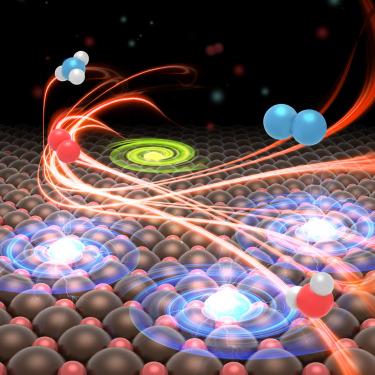当前位置:
X-MOL 学术
›
Chem Catal.
›
论文详情
Our official English website, www.x-mol.net, welcomes your
feedback! (Note: you will need to create a separate account there.)
Reverse effect of metal-support interaction on platinum and iridium catalysts in ammonia selective oxidation
Chem Catalysis ( IF 11.5 ) Pub Date : 2024-12-20 , DOI: 10.1016/j.checat.2024.101229 Jianhua Liu, Diru Liu, Qi An, Tingxu Chen, Yunbo Yu, Guangyan Xu, Hong He
Chem Catalysis ( IF 11.5 ) Pub Date : 2024-12-20 , DOI: 10.1016/j.checat.2024.101229 Jianhua Liu, Diru Liu, Qi An, Tingxu Chen, Yunbo Yu, Guangyan Xu, Hong He

|
Ammonia emissions from vehicles and power plants cause significant environmental concerns. Here, a range of platinum and iridium catalysts supported on oxides with various levels of reducibility were investigated in ammonia selective catalytic oxidation. Weak metal-support interaction (MSI) led to the formation of metal nanoparticles on irreducible Al2O3, whereas strong MSI (SMSI) induced the generation of single-atom metals on reducible CeO2. Notably, MSI demonstrated opposite effects on the catalytic performance of Pt-based catalysts (Pt/Al2O3 ≫ Pt/TiO2 > Pt/CeO2) and Ir-based catalysts (Ir/CeO2 > Ir/TiO2 ≫ Ir/Al2O3). Metallic Pt nanoparticles on Pt/Al2O3 activated gaseous O2 and promoted the low-temperature NH3 oxidation. Conversely, on Ir/CeO2 catalysts, the single-atom Ir-O-Ce site demonstrated high reactivity for NH3 cleavage with an extremely low energy barrier, contributing to the superior low-temperature activity. This study provides insights into governing the MSI effect to regulate the structure on active sites of supported catalysts, thereby enhancing their catalytic performance.
更新日期:2024-12-20






























 京公网安备 11010802027423号
京公网安备 11010802027423号